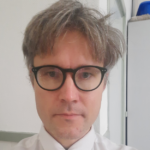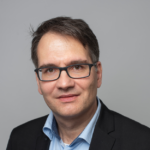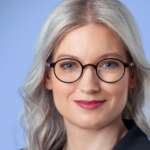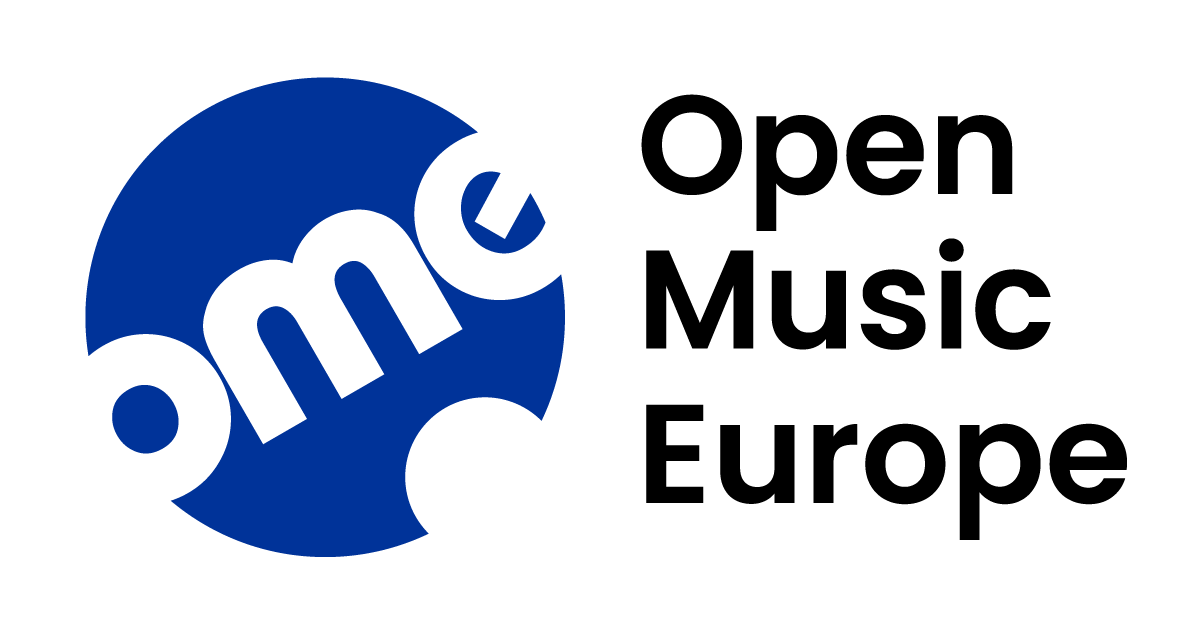Workpackage Leaders

Leo Lahti
Leo Lahti is professor in Data Science in University of Turku, Finland. His team focuses on computational analysis of complex natural and social systems.
For more information, see the research homepage datascience.utu.fi
Leo Lahti is professor in Data Science in University of Turku, Finland. His team focuses on computational analysis of complex natural and social systems. The development of open data science frameworks is an essential component of this work and his team coordinates the rOpenGov developer network for open government data analytics and integration methods. Lahti obtained doctoral degree (DSc) in applied probabilistic machine learning at the Aalto University in Finland (2010), followed by postdoctoral research at EBI/Hinxton (UK), Wageningen (NL), and VIB/KU Leuven (BE). Lahti is now conducting research at the Department of Computing, University of Turku. He is a national delegate in the Committee on Data of the International Science Council, vice chair of the national coordination on open science and a founder of the open science work group of Open Knowledge Finland NGO. For more information, see the research homepage [datascience.utu.fi](http://datascience.utu.fi)

Joost Poort
Joost Poort is associate professor and co-director of the Institute for Information Law. He works as an economist on various economic and multidisciplinary research projects in the field of copyright, telecommunications and media.
Joost Poort is associate professor and co-director of the Institute for Information Law. He works as an economist on various economic and multidisciplinary research projects in the field of copyright, telecommunications and media. Examples include studies on online piracy and enforcement measures against it, the financing of European films and the extension or renewal of licences for telecommunications and commercial radio. On 18 February 2015, he successfully defended his dissertation Empirical Evidence for Policy in Telecommunication, Copyright and Broadcasting. He graduated cum laude as a physicist at Utrecht University in 1996. A year later, he graduated in the Philosophy of Science. During his studies Joost spent a year in Ireland at University College Cork. After his studies, Joost started in 1998 as an economic researcher at Nyenrode Forum for Economic Research (NYFER), where he has been working as a senior researcher since 2000. From 2003 he worked at SEO Economic Research, initially as senior researcher and since 2008 as head of the Competition and Regulation cluster. Over the years, his research has increasingly focused on the economic aspects of copyright, telecommunications and media. Joost is lead author and in many cases project leader of a large number of studies and has written many articles and chapters in scientific, semi-scientific and popular media. He regularly speaks at scientific conferences and expert meetings and debates at home and abroad. In addition, he has written position papers and essays for various ministries and on several occasions was secretary of interdepartmental government committees. Since mid-2015 he has been an Honorary Economics Fellow at CREATe, the RCUK Centre for Copyright and New Business Models in the Creative Economy, at the University of Glasgow.
In this project, Joost functions as WP1 leader and PI on behalf of the Institute for Information Law, University of Amsterdam.

Daniel Antal
Daniel Antal, CFA, is an experienced data scientist, consultant, economist, and the co-founder of Reprex, a Netherlands-based startup that brings the benefits of big data to small organisations with shared resources and research automation.
Daniel has been involved in music economics and data
problems for over a decade. He was one of the initiators of the CEEMID project,
and the author of the Feasibility Study On Promoting Slovak Music In Slovakia
& Abroad, which were the most important predecessors of Open Music Europe.
In 2020, he founded Reprex and validated the product/market fit of the
automated data observatory concept in the Yes!Delft AI+Blockchain Lab, the
world’s 2nd-ranked university-backed incubator program. In 2021, he continued
this work in the JUMP Music Market Accelerator (Creative Europe) program and
organised the consortium of Open Music Europe.
In this Horizon Europe Research and Innovation Action, he is
the leader of WP5, which aims to fill a decentralised prototype of the future
European Music Observatory with the data and research-based knowledge from our
project. He is also the task leader of several other work packages’ data
collection and hopes to build a working observatory that applies reproducible
research technologies and trustworthy AI with human oversight that can be
replicated in natural and social sciences and in digital humanities, too. As an
entrepreneur, he exploits the project’s intellectual property with a tremendous
economic and social impact in the music sector.

James Edwards
James Edwards received his doctorate in Ethnomusicology and Systematic Musicology from University of California. He joined SINUS-Institute in 2017. At SINUS, he has acted as co-principle investigator on Horizon 2020 projects focusing on both the CCSIs and other policy domains.
James Edwards received his doctorate in Ethnomusicology and Systematic Musicology from University of California, Los Angeles in 2015. After working as a visiting scholar at Okinawa International University and an adjunct professor at Lewis & Clark College, he joined SINUS-Institute in 2017. At SINUS, he has acted as co-principle investigator on Horizon 2020 projects focusing on both the CCSIs and other policy domains:
ABC_DJ (https://cordis.europa.eu/project/id/688122), PERCEPTIONS (https://cordis.europa.eu/project/id/833870), and COVINFORM (https://cordis.europa.eu/project/id/101016247).
He has also coordinated the Erasmus+ Strategic Partnership VET Voices (https://www.vetvoices.eu/) and several international projects for civil society organisations in Germany and abroad. This has afforded him the opportunity to contribute to peer-reviewed publications in a wide range of disciplines, from musicology to environmental studies to research ethics. James brings this combination of music expertise and interdisciplinary experience to bear as Open Music Europe project director and WP3 leader. In his free time, he enjoys road and gravel cycling and trying to stay up to date on Berlin’s rich experimental and improvisational music scene.

Caterina Sganga
Caterina Sganga joined Sant’Anna as an Associate Professor of Comparative Private Law in October
2018. Her key research area is international and comparative intellectual property law, with a focus
on European copyright law, IP and new technologies.
Caterina´s key research area is international and comparative intellectual property law, with a focus
on European copyright law, IP and new technologies (esp. AI and data science), the balance between IP and human rights, and data ownership and management in the era of big data.
She also works on
the IP-innovation interface, looking at the interplay between exclusivity, incentive and access in the cultural and creative industries and in the pharmaceutical market.
She is a member elected of the European Copyright Society (ECS), one of the most prestigious
independent academic associations in the field of copyright, President-Elect and Member of the
Board of the European Policy for Intellectual Property Association (EPIP, 2024-2025), a fellow of the European Law Institute (ELI), and a member of ATRIP and ALPS.
From January 2020 to March 2023, she was the coordinator of the H2020 project reCreating
Europe ("Rethinking digital copyright law for a culturally diverse, accessible, creative Europe", 2020-
2022), which studied the impact of EU digital copyright law on creativity, cultural diversity and
access to knowledge through a multidisciplinary approach and a focus on five groups of stakeholders (individual authors and performers, creative industries, cultural institutions such as galleries, libraries, archives and museums, intermediaries, users). ReCreating Europe offered innovative
contributions to assess the impact of current laws, develop reform proposals, and prepare and test
guidelines which may inspire the self-regulatory efforts of different interest groups.

Isabella Tautscher
Isabella Tautscher is a researcher and consultant at the SINUS institute, with a primary focus on EU-funded R&D projects. With a background in international management, she became the Project Manager of OpenMusE in 2024.
Isabella Tautscher received her master’s degree in Internation Management from Vienna University of Economics and Business and the Global Alliance in Management Education (CEMS). Before joining SINUS, she worked at the German Chamber of Commerce in Morocco, where in her last position, she successfully led a development project in cooperation with the GIZ with a focus on employment creation and professional training through foreign direct investment (Business desk AHK, Invest for Jobs).
In 2022, Isabella joined the SINUS-Institute, where she primarily works on qualitative social and market research projects, as well as on EU-funded R&D projects. Besides OpenMusE, she contributed to the Horizon 2020 projects PERCEPTIONS (https://cordis.europa.eu/project/id/833870) and COVINFORM (https://cordis.europa.eu/project/id/101016247), and to the Erasmus+ Strategic Partnership VET Voices (https://www.vetvoices.eu/).
Isabella has been part of the OpenMusE team since its kick-off in 2023, and took on the role of Project Manager in 2024, given her background in international management and positive contributions during the project’s first year. Isabella believes in the importance of transparent communication, cultural sensitivity, and democratic leadership, which she implements in OpenMusE. In her free time, Isabella travels the world in search of the perfect wave, learns new languages (currently working on #7), and listens to Moroccan desert blues and Brazilian funk.
Ethics Advisor

Christine Bauer
Christine Bauer is a Professor of Interactive Intelligent Systems at the Paris Lodron University Salzburg (PLUS), Austria. Her research focuses on recommender systems, with a specific emphasis on the music and media domains.
Christine Bauer is a Professor of Interactive Intelligent Systems at the Department of Artificial Intelligence and Human Interfaces (AIHI) at the Paris Lodron University Salzburg (PLUS), Austria, and a Co-Lead of the focus area “InterMediation. Music—Effect—Analysis” at the inter-university institution Wissenschaft & Kunst.
Her research focuses on recommender systems, with a specific emphasis on the music and media domains. Core interests in her research activities are fairness in algorithmic decision-making and multi-method evaluation.
Her multidisciplinary background drives her research activities. She holds a Doctoral degree in Social and Economic Sciences and a Diploma (equivalent to a Master’s) degree in International Business Administration, both from the University of Vienna, Austria. Furthermore, she holds a Master’s degree in Business Informatics from TU Wien, Austria. Additionally, she studied Jazz Saxophone at the Konservatorium der Stadt Wien, Austria.
Throughout her academic career, she has held positions at various institutions, including Assistant Professor at Utrecht University, The Netherlands, Senior Postdoc Researcher at Johannes Kepler University Linz, Austria, and Visiting Fellow at the Carnegie Mellon University, USA.
For more information, see her website https://christinebauer.eu
In this project, Christine acts as an Independent Ethics Advisor.


